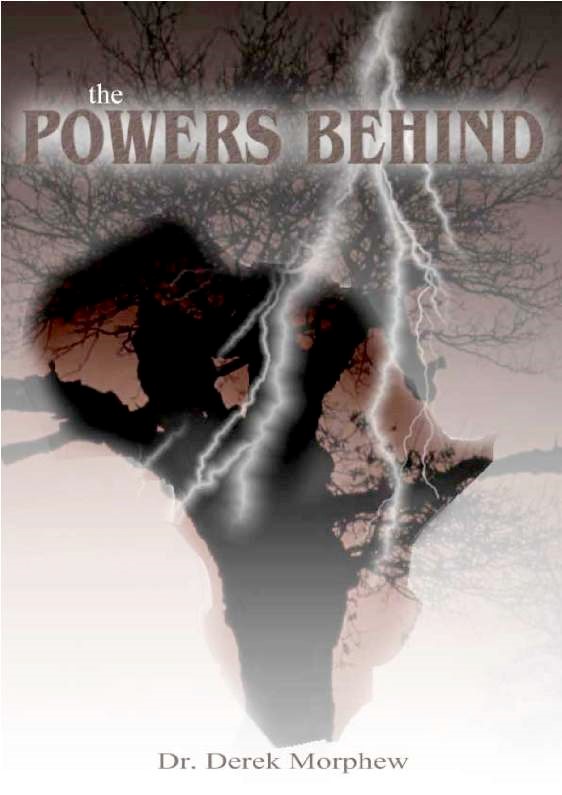
Endorsement
This work approaches the South African scene from a particular angle – the biblical world-view. As we view the South African scene from this angle, we are able to discern the gods behind the scenes, the forces beneath the surface, to see, behind the facade, the incarnation of invisible powers in visible social structures; political, economic, cultural, etc.
South African Christians need to walk on a knife edge. They need to be identified with suffering humanity but totally unidentified with the ideological value systems of this world. We have to find a practical way of being in the world but not of the world.
I have watched Derek Morphew develop into one of the really significant Christian thinkers on the South African state at this time … I know that as you follow him through these pages you too will be caught up in a fresh and hugely challenging adventure of new reflection and fresh resolution.
Michael Cassidy
Africa Enterprise
Preface to the 2011 edition
This work was published in 1989. The Struik publication was the second, following an earlier in-house publication from the beginning of the 1980’s. It arose from a series of sermons delivered to a predominantly white congregation grappling with the growing tension and violence in the country. During that period the Apartheid State controlled most of the mass media, so that most white people were effectively managed in their perceptions. How was one to open the eyes of such a community to what was really happening? The series of sermons, quite controvertial at the time, which led to the publication, was my attempt to answer this challenge.
Since then of course Apartheid has fallen, a new democracy has been born, and the Truth and Reconciliation Commission (TRC) has revealed the true pain of our country. At the time, all such outcomes where a distant hope.
After the work on this publication I served on the national board of the The Evangelical Alliance of South Africa (TEASA), a covering body for all evangelical denominations and structures in South Africa. As a result I was tasked with the responsibility of representing TEASA in our statement to the TRC. I well recall that Desmond Tutu chaired the commission that day. My statement, which followed the primary statement delivered by Moss Nthla, the General Secretary, is found in an appendix.
While the particular ideological struggle of South Africa is now mostly a matter of history, the world is still full of dangerous ideologies. The form of biblical analysis found here may well be useful to Christians in other contexts.
Table Of Contents
Foreword
List of abbreviations
Preface
Introduction
The pietistic approach
The activist or Constantinian approach
The eschatological or kingdom approach
The confusion of church and state
The radical change in the teaching of Jesus
The implications of separation
The church and the Roman state before Constantine
The teaching of the Reformers on church and state
The beginning of separation with Oliver Cromwell
The separation of church and state in the First Amendment
Gods and Principalities
The biblical world view
Conclusion
Western Values and Capitalism
The liberal capitalist democracies of the West
The Christian doctrine of creation
The Christian doctrine of salvation & sanctification
The Christian doctrine of man
Problems in the liberal capitalist democratic system
Fascism and Racism
German Nationalist Philosophy
The Influence of German Nationalism in SA history
National Socialism (Fascism) in South Africa
Apartheid and German nationalism
Fascism in South Africa Today
Marxism and Revolution
Karl Marx and his background
The ingredients in Marxist belief
Marx, Marxism and its influence
Marxism evaluated
Apartheid and Heresy
The history of apartheid
The use of scripture to support apartheid
Scriptural critique
Is apartheid a heresy?
Apartheid: The Gradual Reversal of a Heresy
The new position of the Dutch Reformed Church
The status of English, Pentecostal and charismatic churches
Kairos
The legal aspects of apartheid
Apartheid and interpersonal relationships
Black Consciousness and Liberation Theology
The use of scripture in black theology
A Critique of Liberation Theology
Black theological methodology
Conclusion
The Kingdom of God and the Kingdoms of This World
Glossary
Bibliography
Audiotapes
Selected Bibliography
